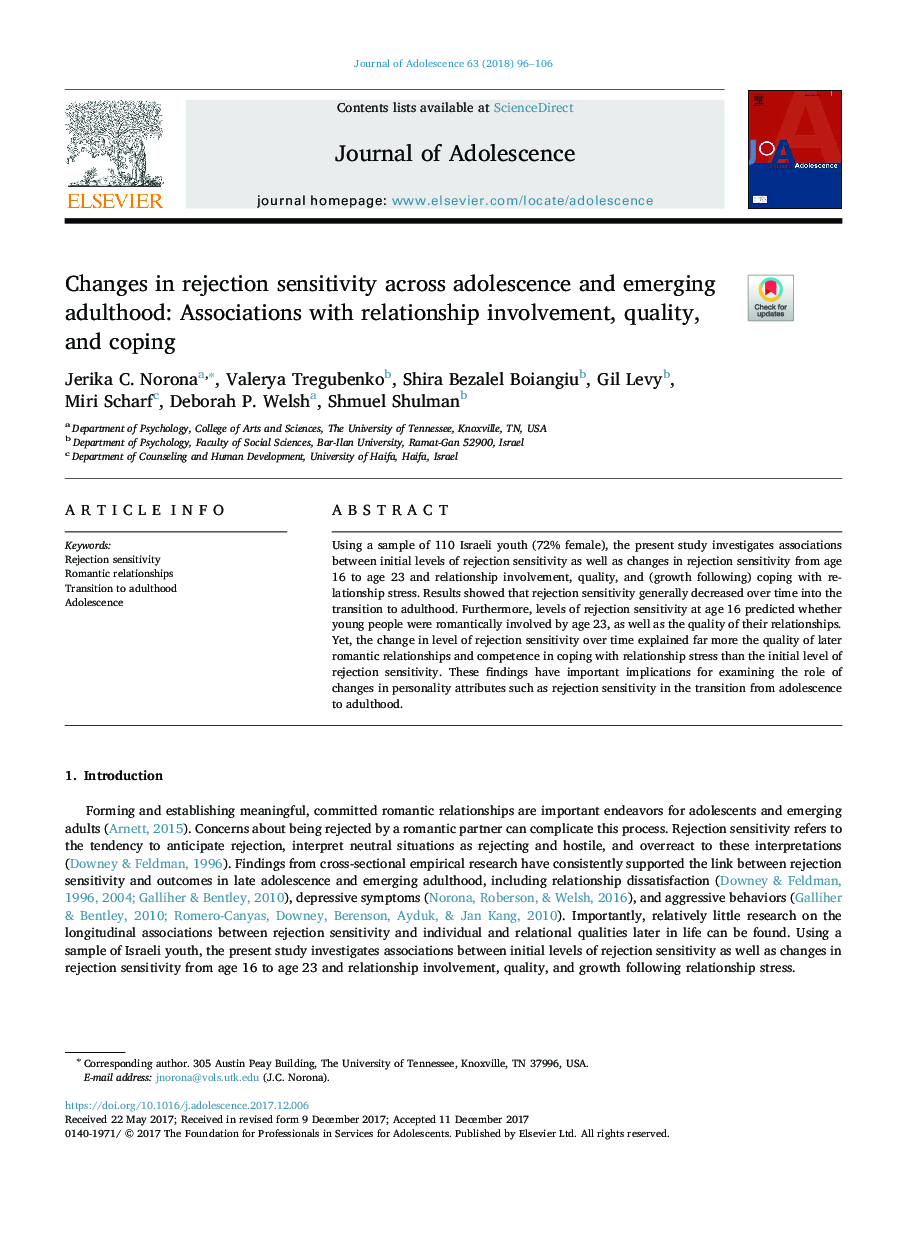| Article ID | Journal | Published Year | Pages | File Type |
|---|---|---|---|---|
| 7240982 | Journal of Adolescence | 2018 | 11 Pages |
Abstract
Using a sample of 110 Israeli youth (72% female), the present study investigates associations between initial levels of rejection sensitivity as well as changes in rejection sensitivity from age 16 to age 23 and relationship involvement, quality, and (growth following) coping with relationship stress. Results showed that rejection sensitivity generally decreased over time into the transition to adulthood. Furthermore, levels of rejection sensitivity at age 16 predicted whether young people were romantically involved by age 23, as well as the quality of their relationships. Yet, the change in level of rejection sensitivity over time explained far more the quality of later romantic relationships and competence in coping with relationship stress than the initial level of rejection sensitivity. These findings have important implications for examining the role of changes in personality attributes such as rejection sensitivity in the transition from adolescence to adulthood.
Related Topics
Health Sciences
Medicine and Dentistry
Public Health and Health Policy
Authors
Jerika C. Norona, Valerya Tregubenko, Shira Bezalel Boiangiu, Gil Levy, Miri Scharf, Deborah P. Welsh, Shmuel Shulman,
